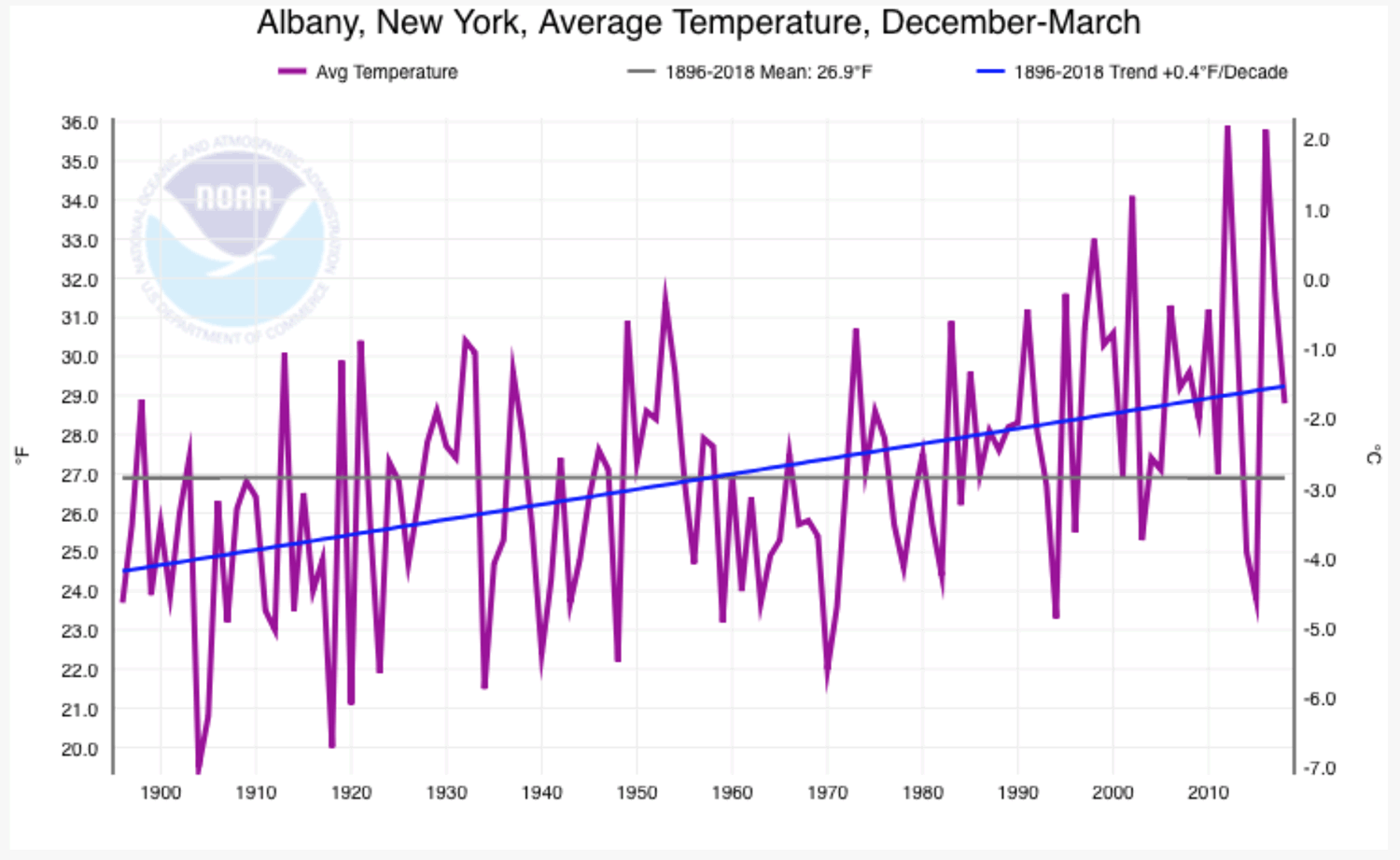Albany winters have been getting warmer

Here's a larger version.
A lot of people seemed to enjoy last week's post about when it's "actually" winter here -- that is, the part of the year here that tends to have the coldest temperatures rather than the standard definitions of the season. We looked at it two ways, and the best way (in our opinion) pegged winter in the Albany area as being from December 1 to March 20.
So here's the B side to that track: On average, winters in the Albany area have been getting warmer over the last century (plus). And not by a little -- the average December-March temperature here has been trending up by .4 degrees Fahrenheit per decade.*
That graph above was generated by an interactive tool on the website for NOAA, the federal agency. It shows the trend for average December-March temperatures in Albany between 1896 and 2018.
Here are a few more bits.
Winter has been odd lately
We've mentioned this before, but winter's been kind of weird lately. Four of the warmest winters on record in Albany have come since 2010. And the winter that ended in 2012 was the warmest December-March stretch on record.
(These records differ a little bit from the ones posted on the NWS Albany website because NWS defines winter as December-February.)
There's a broader trend
Every season has been warming across the entire country, but it's been especially true in the northern parts of the Northeast and upper Midwest. [Climate Central x2]
* A few degrees is a lot
A few degrees over a century might not seem like much, but when it comes to average temperatures and climate change it's a big deal. [NYT]
Part of that is because the averages cover up some big year-to-year variation, like the 2011-2012 winter here when the temperature was 9 degrees warmer than the average over the last century. Or the 2015-2016 winter when it was almost as warm and had very little snow.
As a climate scientist explained to us a few years back, these small shifts can have a big impact on the frequency of extreme events. And they can mess with all sorts of natural systems.
That big report on climate change released by a group of federal agencies on the day after Thanksgiving detailed many of these risks. And it concluded that we're collectively not doing enough to head off "to avoid substantial damages to the economy, environment, and human health over the coming decades."
Albany winters since 1896
Here are the December-March average temperatures for Albany since 1896, from the NOAA data.
Hi there. Comments have been closed for this item. Still have something to say? Contact us.
Comments
I would welcome the end of winter in the Capital region before mid-April any day.
... said Marco on Dec 13, 2018 at 8:55 AM | link